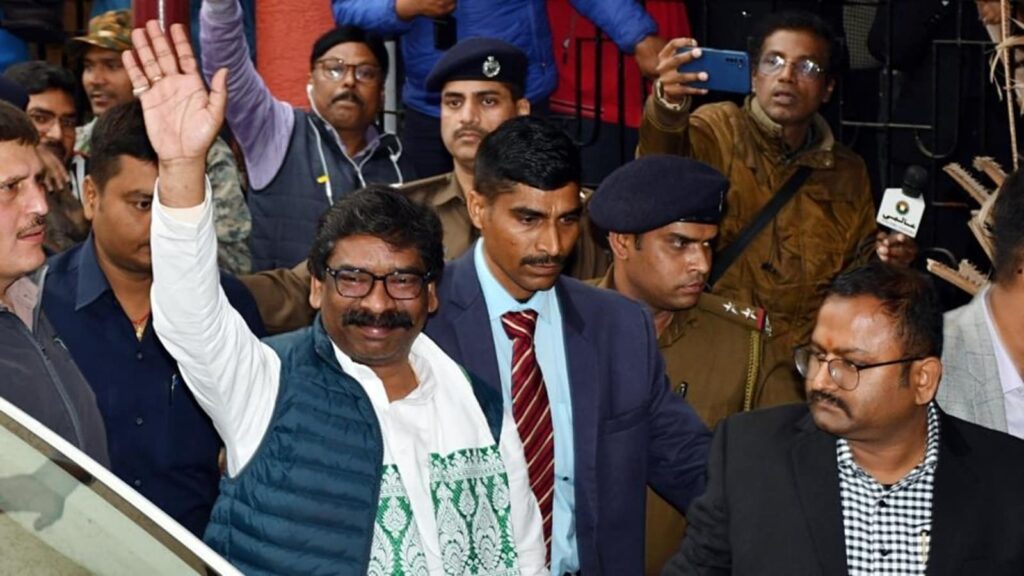Champai Soren, 68, took oath as the chief minister (CM) of Jharkhand on Friday, after receiving an invite from Governor CP Radhakrishnan late Thursday night. His elevation came after Jharkhand Mukti Morcha (JMM) chief and CM Hemant Soren resigned from office on Wednesday, before his arrest by the Enforcement Directorate on charges of money laundering. Since the formation of the state in 2000, only one CM, the BJP’s Raghubar Das, has been able to complete a full term in Ranchi. The instability in government, a reflection of the unsettled nature of the state polity, has impacted governance in a resource-rich, but very poor and largely tribal state.
Champai Soren’s choice is significant since the JMM, born out of a grassroots movement that problematised adivasi identity, usury, and the distribution of resources in the 1970s, had in recent years become a family fief of Shibu Soren, the face of the Jharkhand movement and Hemant’s father. There were multiple claimants for the CM’s post from the Soren family. Champai Soren, no relative of Shibu Soren but a senior leader from the JMM’s founding days and multiple times legislator and a minister with a clean record in office may well have been chosen to avoid a possible implosion of the party. The party, and the state, have been singed by corruption scandals — ranging from the 1993 cash-for-votes case involving four JMM MPs to bribery cases involving mining licences. Champai Soren can stay clear of this murky path and leave a legacy of providing an efficient administration; the state is scheduled to have assembly elections in December. The transition in Ranchi also has political ramifications since it comes ahead of the general elections — Jharkhand has 14 Lok Sabha seats, and the INDIA bloc, which includes the JMM, is intact here, unlike in neighbouring Bihar where it lost face after JD (U) leader Nitish Kumar jumped ship.
Events in Ranchi have flagged issues that resonate beyond Jharkhand. For instance, the role of the governor’s office as an impartial arbitrator. In Opposition-ruled states, the governor’s office has come under a cloud with many incumbents being accused of interfering with the administration, forcing the Supreme Court to draw a red line. Governor Radhakrishnan did not help dispel this sentiment when he vacillated on inviting Champai Soren after he was elected the leader of the JMM. Soren has been given 10 days to prove his majority.
The other issue in the spotlight concerns the arrest of Hemant Soren. As in the case of Raj Bhavans, the ED too faces a trust deficit, with the Opposition accusing the agency of being a willing instrument of the Centre. The Prevention of Money Laundering Act (PMLA), 2002, has powers that the ED has wielded to investigate politicians, primarily from the Opposition. The Court, which ruled in favour of the PMLA in 2022, is now hearing a review and has already clarified that the ED has no power to arrest a person if the latter refuses to acknowledge its summons. The ED’s reputation allows many politicians under probe to claim that they are victims of political witch hunts.
The State needs to be sensitive to these concerns for they involve the balance of powers among institutions and risk upsetting the delicate federal balance envisaged in the Constitution.
Continue reading with HT Premium Subscription
Daily E Paper I Premium Articles I Brunch E Magazine I Daily Infographics


